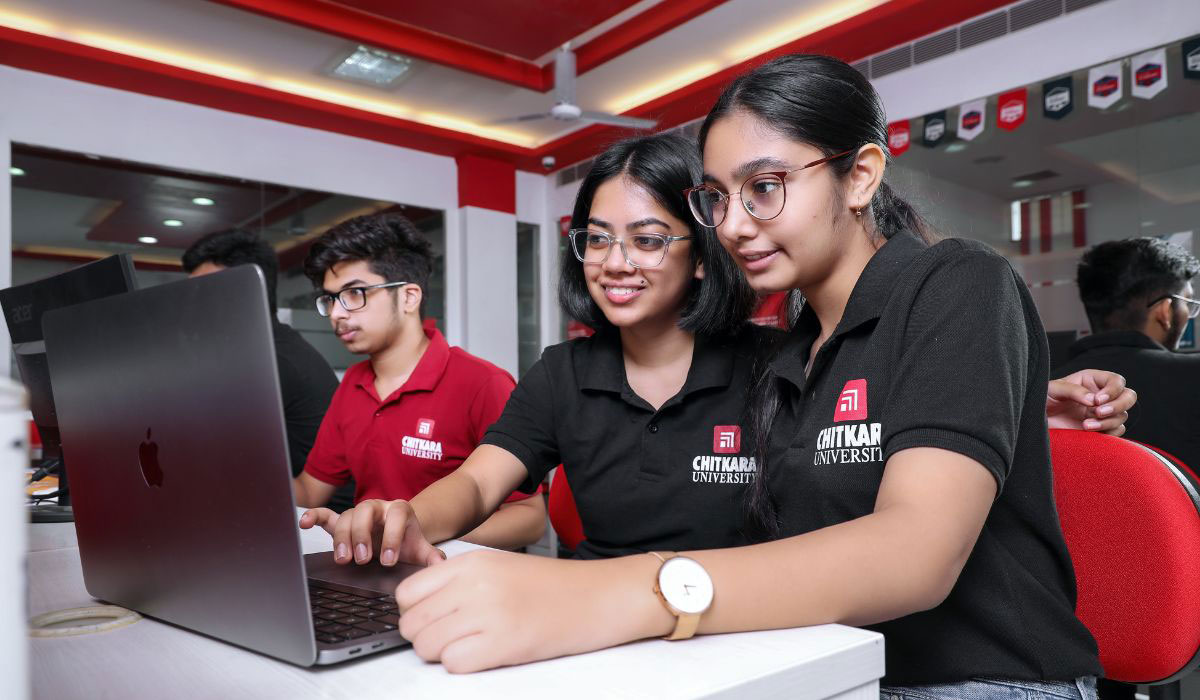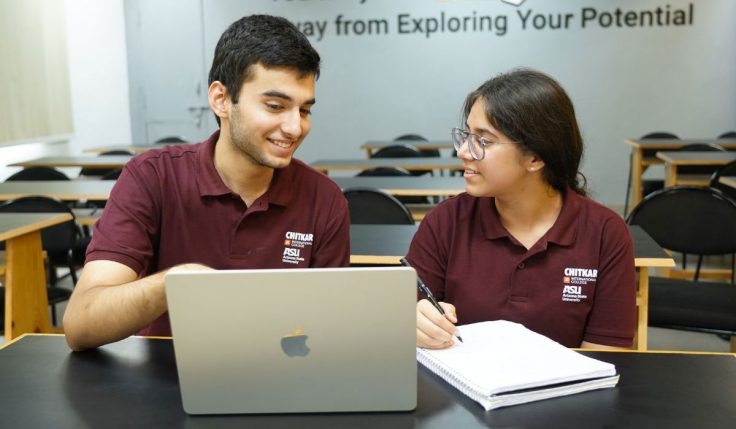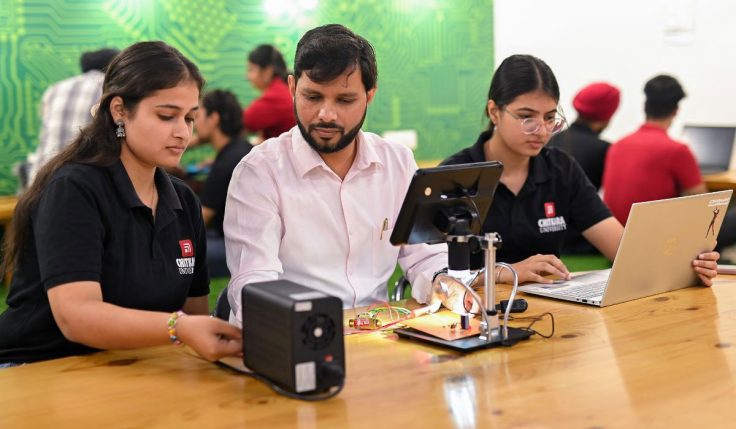A DevOps engineer’s job in the ever-changing world of technology has become not just crucial, but revolutionary. DevOps practises have transformed how software development and IT operations work together, resulting in faster releases, higher quality, and more customer happiness. This thorough roadmap will equip students with the insights and procedures needed to traverse this fascinating career path if they want to become a DevOps engineer in 2023.
Understanding DevOps: Bridging the Gap
Technology is always growing in today’s fast-paced world, pushing limits and reshaping how organisations work. A DevOps (Development and Operations) specialisation within a Bachelor of Engineering in Computer Science programs can provide students with a unique chance to be at the forefront of this revolutionary environment.
Read this blog post: The Power of DevOps: Revolutionizing Business Operations for a Digital Future
DevOps is more than just a buzzword; it represents a fundamental shift in how businesses approach software development and IT operations. The fluid link that exists between these two domains is what enables efficiency, cooperation, and faster software delivery. The DevOps specialization’s major purpose is to break down conventional divisions between development and IT operations, enabling seamless communication and cooperation between these essential business areas.
Lay the Foundation
Recognise the DevOps Culture
Begin your journey by understanding the culture that supports DevOps. It is a philosophy that prioritises cooperation, constant improvement, and shared accountability for both development and operations.
Discover Agile Methodologies
DevOps concepts are strongly related to Agile principles. Learn about Agile approaches like as Scrum and Kanban, which emphasise iterative development, adaptability, and customer focus.
Investigate Industry Use Cases
Examine case studies from businesses that have effectively embraced DevOps practises. This will equip you with hands-on experience with how DevOps can handle real-world difficulties and bring actual advantages.
Build Your Technical Skill Set
Infrastructure as Code (IaC)
Master the concept of IaC, which involves managing and provisioning infrastructure using code. Tools like Terraform and CloudFormation are essential for automating the creation of servers, networks, and other resources.
Microservices Architecture
Understand the fundamentals of microservices architecture, which is closely aligned with DevOps. Learn how to design, deploy, and manage microservices for greater scalability and maintainability.
Continuous Monitoring and Feedback
Explore tools like Nagios, Zabbix, and Datadog for monitoring applications and infrastructure. Understand how monitoring provides real-time insights and feedback for better decision-making.
Security Automation
Security is paramount in DevOps. Learn how to integrate security practices into the development lifecycle using tools like OWASP ZAP and SonarQube for vulnerability scanning and code analysis.
Advanced Containerization
Go beyond the basics of Docker and Kubernetes. Explore advanced containerization topics like managing stateful applications, utilizing service meshes, and optimizing container performance.
Cloud Native Technologies
Serverless Computing
Dive into serverless architecture using AWS Lambda, Azure Functions, or Google Cloud Functions. Learn how to build and deploy applications without provisioning or managing servers.
Cloud-native Databases
Understand cloud-native databases like Amazon RDS, Azure Cosmos DB, and Google Cloud Spanner. Learn how to design and manage databases optimized for cloud environments.
Soft Skills and Collaboration
Continuous Learning and Adaptability
The world of technology never stops evolving. Develop a mindset of continuous learning to stay relevant and adaptable to new tools, practices, and paradigms.
Empathy and Communication
DevOps engineers work with cross-functional teams. Develop strong interpersonal skills, empathize with colleagues’ perspectives, and communicate effectively to foster a collaborative environment.
Problem-Solving and Critical Thinking
Complex challenges are par for the course in DevOps. Cultivate problem-solving and critical thinking skills to analyze issues, troubleshoot, and devise innovative solutions.
Practical Experience
Open Source Contributions
Participate in open-source projects related to DevOps tools. Contributing to these projects not only enhances your skills but also demonstrates your commitment to the DevOps community.
Personal Labs and Projects
Set up your personal lab environment to experiment with new tools and techniques. Build projects that showcase your skills in areas like CI/CD pipelines, infrastructure automation, and container orchestration.
Also, read this blog post: How Can DevOps Help Students Excel in the Tech Industry?
Networking and Community Engagement
Join DevOps Communities
Become an active member of DevOps-related online forums, subreddits, and LinkedIn groups. Engage in discussions, ask questions, and share your knowledge.
Attend Industry Events
Participate in conferences, webinars, and meetups dedicated to DevOps. These events offer opportunities to network, learn from experts, and stay up-to-date with industry trends.
Professional Development and Certifications
DevOps Certifications
Consider pursuing certifications that validate your DevOps expertise, such as Certified DevOps Professional (CDOP), AWS Certified DevOps Engineer, and Certified Kubernetes Administrator.
Soft Skills Workshops
Attend workshops or courses focusing on soft skills like leadership, negotiation, and conflict resolution. These skills are essential for effective collaboration in a DevOps environment.
Becoming a DevOps engineer requires a holistic approach that encompasses technical expertise, soft skills, and a commitment to continuous learning. The roadmap provided here serves as a comprehensive guide for students aspiring to venture into the dynamic field of DevOps engineering in 2023. Remember, the journey is about more than just mastering tools—it’s about embracing a culture of collaboration, innovation, and automation. Embrace challenges, stay curious, and relish the process of evolving into a proficient and sought-after DevOps engineer.
The DevOps specialization within the B.E. in Computer Science Engineering program at Chitkara University offers students an unparalleled opportunity to become agents of change in the tech world. By mastering the principles of DevOps, you’ll be equipped to navigate the dynamic landscape of software development and IT operations. This specialization not only imparts technical skills but also nurtures a mindset of collaboration, innovation, and continuous improvement—qualities that are highly valued in today’s fast-paced tech industry.
Embrace the DevOps journey at Chitkara University and embark on a path that leads to a meaningful and impactful career in the world of technology. Your future starts here—discover your potential and chart your course to success.






